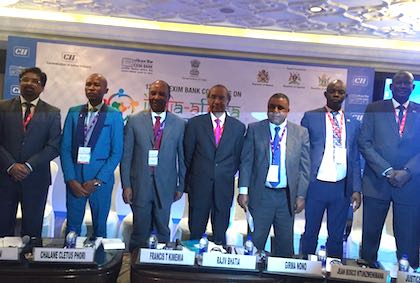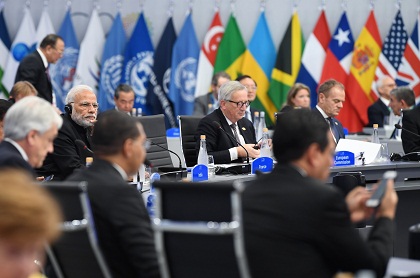 Courtesy: MEA/Flickr
Courtesy: MEA/Flickr
The 2019 G20 Summit in Osaka on June 28-29, is the 14th meeting of the Group of 20 leaders. The G20 is the world’s most influential economic multilateral forum. It is the agenda-setting forum that develops and guides rules of global economic governance. Under the Japanese Presidency, this summit will be the first to discuss and establish the rules for the worldwide governance of data, including current hot-button issues like data localisation and data sovereignty.
India has both a preparatory and a contributory role to play in the G20 this year. For in 2022, it will be the President of the G20. India must identify its agenda early on; its a weighty responsibility but also an opportunity to set the global economic agenda.
 Courtesy: Nextgov
Courtesy: Nextgov
Gateway House contributed to a report on 'The Age of Digital Interdependence' of the United National Secretary-General's High-Level Panel on Digital Cooperation.
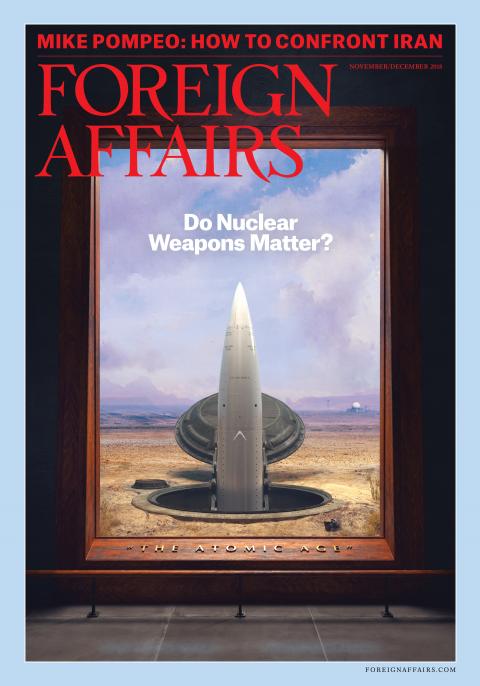 Courtesy: Foreign Affairs
Courtesy: Foreign Affairs
Experts estimate the likelihood of a U.S.-Chinese nuclear crisis as “somewhere between nil and zero.” This assurance is misguided. The United States' signature approach to conventional warfare would be a potential recipe for nuclear escalation.
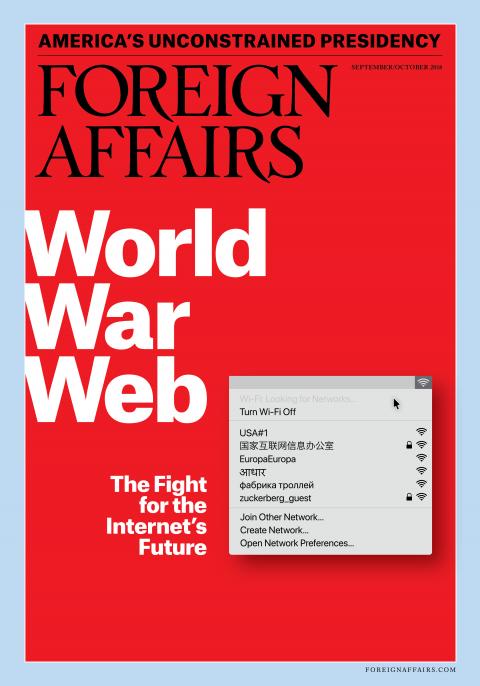 Courtesy: Foreign Affairs
Courtesy: Foreign Affairs
The immediate threat is more corrosive than explosive. States are using the tools of cyberwarfare to undermine the very foundation of the Internet: trust. The result is that an arena that the world relies on for economic and informational exchange has turned into an active battlefield.
 Courtesy: Global Environment Facility
Courtesy: Global Environment Facility
Since Independence, India has been consumed by its domestic priorities. Now, with increasing integration with the world and a huge stake in global stability, it is time to focus on the global commons. India has a seat on the hightable to design and shape the rules for the governance of the global commons.
In this special Independence Day Briefing, Gateway House examines India’s engagement with four global commons – technology, outer space, cyber and the oceans – and makes recommendations on how best they can be governed for our collective future.
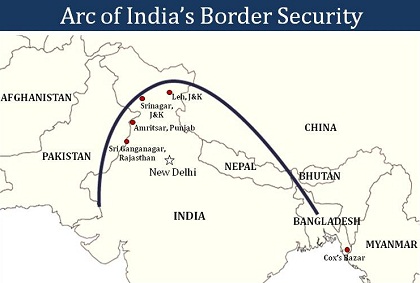 Courtesy: Gateway House
Courtesy: Gateway House
Border regions and communities, some of them far from the heartland, constitute India’s first line of defence, a critical link in its national security. India’s 15,000-km borders touch seven neighbouring countries: Afghanistan (abutting Gilgit), Pakistan, Nepal, Bhutan, China, Bangladesh, Myanmar. Border regions have their own local dynamics, often shaped by subnational and religious identities that do not necessarily align neatly with political borders. Some also serve as flourishing corridors for illegal smuggling of goods and humans. Technology plays an important role in better protecting borders, but in some cases it has made borders obsolete. Despite their importance, border regions do not receive the full attention of the Indian mainstream, except when border tensions arise.
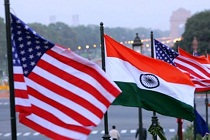 Courtesy:
Courtesy:
An article written for our website by our co-founder and Director, Amb. Neelam Deo, analyzing the recent Trump-Kim summit in Singapore, was republished in the Washington D.C.-based publication, “India America Today“. Read the republished piece here.
 Courtesy:
Courtesy:
An article by our experts Amit Bhandari and Kunal Kulkarni on the effect of recent changes in the Iran Deal on India was republished by India America Today. Read the republished article here.
During The Gateway of India Geoeconomic Dialogue, Shyam Saran, former Foreign Secretary of India and Dr. Richard Haass, President, Council on Foreign Relations discussed the relationship between India and the United States in a changing Asia. Dr. Rajiv Kumar, Vice Chairman, NITI Aayog, in his keynote address spoke about India's future and delivering private solutions to public problems. Urve Palo, Estonian Minister of Entrepreneurship and Information Technology, and Dr. V.K.Singh, Indian Minister of State for External Affairs, gave the opening remarks.









